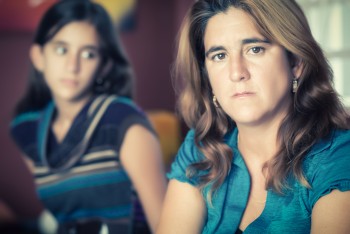
I know that I have a huge backlog of questions to answer and you’ll forgive me that I pushed this one to the front. I so rarely get parenting questions and I forget how important they really are.
Question:
After many, many years of struggle, I am finally trying to seriously recover from my
binge eating disorder. Your website has given me many important points to take time to think about as I begin. I do know that I never learned how to deal with feelings of any kind and I binge to numb them away.
My daughter is 11. As far as I can tell, she (so far) does not care about her appearance beyond being clean. She doesn’t watch herself or her food with a critical eye.
She noticed and asked about my food and feelings journal. I explained that I carry the journal to write down some things to think about later, but that is all.
This leads to my questions: How much should she know about my disorder and recovery? Should I wait until I am further into recovery instead of at the beginning to discuss it, if at all?
I understand that every child is different and every parent-child relationship is different, so there is no single solution. I guess I am hoping for a bit of guidance from experience on what generally should or should not be shared.
On the one hand, I think it could lead to an important discussion about body image and how NOT to deal with uncomfortable feelings. It could also possibly help us bond further by letting her in to my inner struggles and humanity. I am her stepmother, but the only mom she has ever known.
On the other hand, I’m worried that I will awaken a critical eye in her just by discussing this. Also, because I don’t know how to deal with feelings myself yet, I won’t have an answer for her about what she SHOULD do when dealing with feelings.
Thank you for any insight you can give me and again, thank you for your resources on the web.
I love your question. It’s so insightful and shows that you’ve been thinking about it a lot. I’ve been holding this question and thinking about how to answer it.
Generally speaking, I believe that it’s always important in families to be honest. I also believe it’s important not only to let your children have their own feelings, but to show them that you too have feelings and that you’re not afraid of them. I think it’s important to give children an emotional literacy. To ask them what they are feeling and then to help them contact what feelings they are having. You can give your daughter a
feelings list and together you can look it over and discuss what feelings you might be experiencing in the moment. You might even take it a step further and ponder where in your body you feel specific feelings, for instance, “I am feeling fear in my stomach.” Together, you will learn how to talk about feelings which will create a strong basis for future discussions, openness and honesty.
That being said, I think that your instinct to protect your daughter at this time are probably right. I don’t know that she needs to know details about
your eating disorder, your feelings and your recovery at this moment. Especially because they are still eluding you somewhat. It’s important for children to feel safe and held and it’s possible that she might begin to feel like she has to be the mom and she has to take care of you if she begins to worry about you. That does not mean being in denial about what is going on with you. If she asks point blank, be forthcoming. For instance, “Mommy, how come you never used to eat but now you’re eating with us?” you can say, “I was not eating healthy before, but I’m working to be strong and healthy now,” and if she asks you why you weren’t eating healthy, you can tell her that you still don’t know why but you are trying to learn that now by thinking and talking about your feelings, then ask her what she thinks and how she feels about that and what that brings up for her. Make every inquiry from her an opportunity for her to discuss her feelings. And at the same time, it’s important that you do share with her, but don’t share too much. Sometimes it’s easy to forget that pre-teens are younger emotionally than they seem. What I have seen often in my practice is Moms oversharing with their daughters, making them their confidants, then the girls being
parentified daughter. In my own family, I remember my brother trying to control my step-mother’s eating disorder by him refusing to eat. When we sat down to dinner, if she wasn’t eating, he wouldn’t eat and it became a huge fight and was very unpleasant. She never discussed her recovery with us and never really tried to recover. It was definitely very difficult for us to watch. We were both always worried from very young ages. As your daughter becomes more aware of you and your eating behaviors, I would encourage you to check in with her about her feelings and create an open environment for learning and emotional literacy. I hope that this was helpful to you. Please do comment and let me know how you’re doing.
Warmly,
Leora
Do you have a question about binge eating, bulimia, anorexia, or anything associated with eating disorders? Send an email to bingeeatingtherapy at gmail dot com. All questions will be kept confidential. Include your first name or the name you want to be referred to as and your location. Are you interested in online therapy to deal with your eating disorder? Please see my website or email me to discuss getting started.
 I know that I have a huge backlog of questions to answer and you’ll forgive me that I pushed this one to the front. I so rarely get parenting questions and I forget how important they really are.
I know that I have a huge backlog of questions to answer and you’ll forgive me that I pushed this one to the front. I so rarely get parenting questions and I forget how important they really are.


 Follow
Follow
